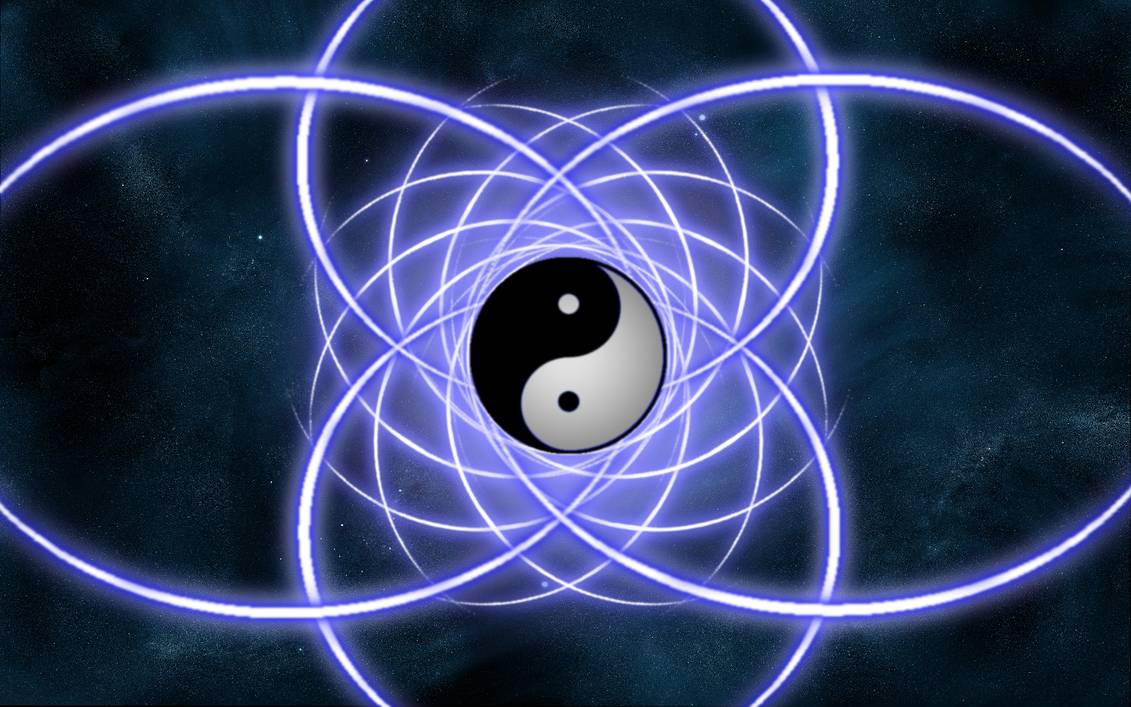Before we enter Yoga Sutra 35 let’s understand – Religion.
“I am beginning to lose faith in my ability,” said the young salesman to his friend.
“Today has been terrible, and not one sale. I have been thrown out of apartments, had doors slammed in my face, been kicked down staircases, had my samples thrown in the gutter, and been shot at by irate householders.”
His friend said, “What is your line?”
“Bibles,” said the young salesman.
WHY has religion become a dirty word? Why are people full of hatred the moment you mention the word religion, God, or something like that? Why has the whole of humanity become indifferent? Something must have gone wrong somewhere. It has to be understood because this is not an ordinary matter.
Religion is such a significant phenomenon that man cannot live without it. And to live without religion will be living without any purpose. To live without religion will be living without any poetry. To live without religion will be living a drag of a life, a boredom – what Sartre is saying when he says that man is a useless passion. Without religion he becomes so. Man is not a useless passion, but without religion he certainly becomes so. If there is nothing higher than you then all purpose disappears. If there is nothing higher to reach, higher to be, then your life cannot have any goal, cannot have any meaning. The higher is needed to attract you, to pull you upwards. The higher is needed so that you don’t get stuck in the lower.
Without religion life will be like a tree which never comes to flower, a fruitlessness. Yes, without religion man is a useless passion, but with religion man becomes the very flowering of life, as if God is fulfilled in him. So it has to be understood why religion has become such a dirty word.
There are people who are positively against religion. There are people who may not be positively against but who are positively indifferent towards religion.
There are people who may not be indifferent to religion but who are only hypocrites who go on pretending that they are interested. And these three categories are all the categories there are. A genuine religious person has disappeared.
What has happened?
First thing the discovery of a new attitude towards life, the discovery of science – a new window opened – and religion could not absorb it. Religion failed to absorb because ordinary religion is incapable of absorbing it.
There are three attitudes towards life possible: one is logical, rational, scientific; another is infralogic – superstitious, irrational; and the third is suprarational – transcendental. The ordinary religion tried to cling to the infrarational attitude.
That became the suicide; that became the slow poisoning. Religion has committed suicide because it got stuck in the lowest standpoint towards life – infrarational. What do I mean when I use the word “infrarational”? Just a blind faith. Religion thrived on it up to this century because there was no competitor, there was not a higher standpoint.
When science came into being, a higher standpoint, more mature, more valid came into existence, there was a conflict. Religion became apprehensive, afraid, because the new attitude was going to destroy it. It became defensive. It became more and more closed. It tried in the beginning – because it was powerful, it was the establishment – it tried to destroy the Galilee’s of science not knowing that those destructive steps were going to become suicidal to itself. Religion started a long battle with science – of course a losing battle.
No lower standpoint can fight with a higher standpoint. The lower standpoint is bound to fail – today, or tomorrow, or the day after tomorrow. The battle at the most can postpone the defeat, but it cannot avoid it. Whenever a higher standpoint is there, the lower has to disappear. It has to change; it has to become more mature.
Religion died because it could not become more mature. Ordinary religion, the so-called religion, has died because it cannot raise itself to Patanjali’s level.
Patanjali is religious and scientific. Only the religion of Patanjali can survive.
Less than that won’t do now. Man has tasted a higher consciousness through science, more validity about truth. Now man cannot be forced to remain blind and superstitious; it is impossible. Man has come of age. He cannot be forced to be a child in the old ways, and that’s what religion has been doing.
It has become a dirty word, naturally.
The second attitude, the logical attitude, is Patanjali’s standpoint. He does not ask to believe in anything. He says be experimental. He says that all that is said is hypothetical – you have to prove it through your experience and there is no other proof. Don’t believe in others and don’t remain with borrowed knowledge.
Religion died because it became just a borrowed knowledge. Jesus says, “God is,” and Christians go on believing. Krishna says, “God is,” and Hindus go on believing. And Mohammed says, “God is, and I have encountered him and I have heard his voice.” and Mohammedans go on believing. This is borrowed. Patanjali differs there. He says, “Nobody’s experience can be yours. You will have to experience it. Only then – and only then – is truth revealed to you.”
I was reading an anecdote: Two American soldiers were squatting in a dugout somewhere in the Far East waiting for the attack. One of them drew out paper and pencil and started to write a letter, but he broke the point of the pencil. Turning to the other soldier he said, “Hey, Mac, can you lend me your ball pen?” The man handed him a ball pen. “Hey, Mac,” said the letter writer, “do you happen to have an envelope?”
The other man found a crumpled envelope in his pocket and handed it over. The writer scribbled on, then he looked up and said, “Got a stamp?” He was given a stamp. He folded the letter, put it into the envelope, stuck the stamp on the top, then he said, “Hey, Mac, what is your girl’s address?”
Everything borrowed – even the girl’s address.
The address that you have got of God is borrowed. That God may have been a girlfriend to Jesus, but he is not to you. That God may have been a beloved to Krishna, but he is not to you. Everything borrowed – the Bible, the Koran, the Geeta. How can one go on deceiving oneself by borrowed experience? One day or other the whole thing will look absurd, meaningless. One day or other the borrowed knowledge is going to become a burden. It will cripple you and crush you. This has happened.
Patanjali does not believe in borrowed experience. He does not believe in belief.
That’s his scientific attitude. He believes in experience, he believes in experiment.
Patanjali can be understood by Galileo, by Einstein. Galileo and Einstein can be understood by Patanjali. They are fellow travelers.
The future belongs to Patanjali. It does not belong to the Bible, it does not belong to the Koran, it does not belong to the Geeta: it belongs to the YOGA SUTRAS – because he talks in the same language. Not only that he talks, he belongs to the same dimension, the same understanding of life and the same logical approach.
There is a third standpoint also: that is suprarational. That is the standpoint of Zen. Far away. Very far away in the future. That far away looks like just imagination. There may come a time when Zen may become the world religion, but it is very, very far away, because Zen is suprarational. Let me explain it to you.
The infrarational, that which is below reason, also has an appearance of the suprarational. It looks like it, but it is not like it: it is a counterfeit coin. Both are illogical, but in a tremendously different way. Profound is the difference, vast is the difference. The infrarational is one who lives below reason in the darkness of a blind faith, lives in borrowed knowledge, has not been daring enough to experiment, has not been courageous enough to move into the unknown on his own. His whole life is a borrowed life, inauthentic – dull, drab, insensitive. The man who has moved to the suprarational is also illogical, irrational, but in a totally different sense his irrationality has absorbed reason and gone higher than it. He has transcended reason.
The man of infra-rationality will always be afraid of reason because reason will always create a defensiveness. It will always create fear. There is the danger if reason succeeds then the faith, then the belief, will have to die – one clings to it against reason. The man of suprareason is not afraid of rationality. He can delight in it. The higher plane can always accept the lower – not only accept: it can absorb it: it can nourish on it. It can stand on its shoulders. It can use it. The lower is always afraid of the higher.
The infrarational is a minus thing – minus reason. The suprarational is a plus thing – plus reason. The infrarational is faith. The suprarational is trust – trust through experience. It is not borrowed: but the man of the suprarational has come to understand that life is more than reason, The reason is accepted: there is no denial of it. The reason is good as far as it goes, it has to be used, but life is not finished there. This is not the boundary of life: life is a bigger thing. Reason is part of it – beautiful if it remains in the organic unity of the whole: ugly if it becomes a separate phenomenon and starts functioning on its own. If it becomes an island, then ugly. If it remains part of the vast continent of being, then beautiful: it has its uses.
Tags: Patanjali Three Attitudes Towards Life










